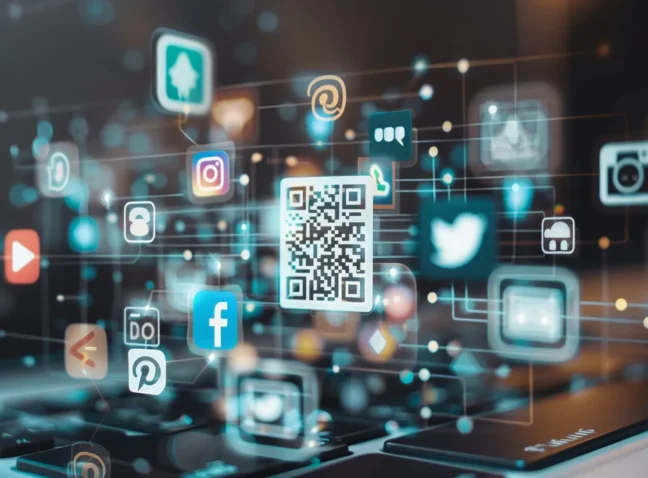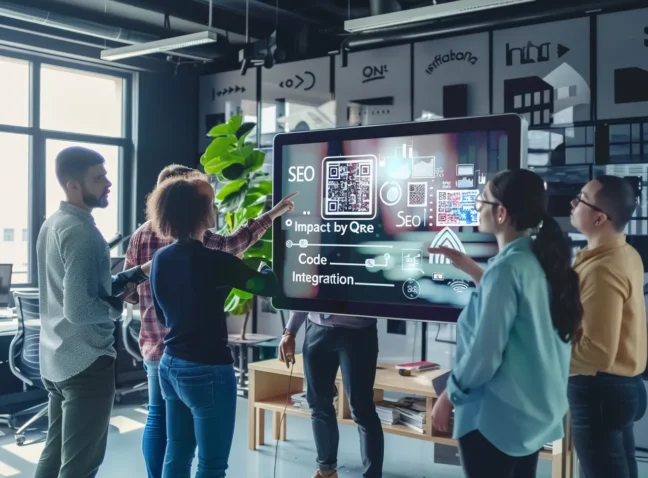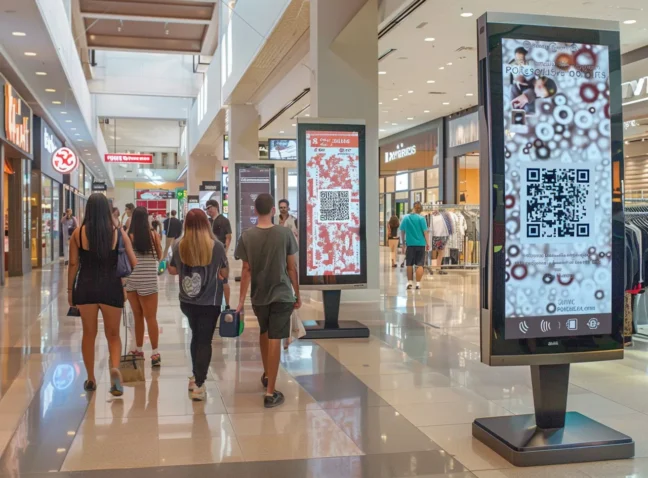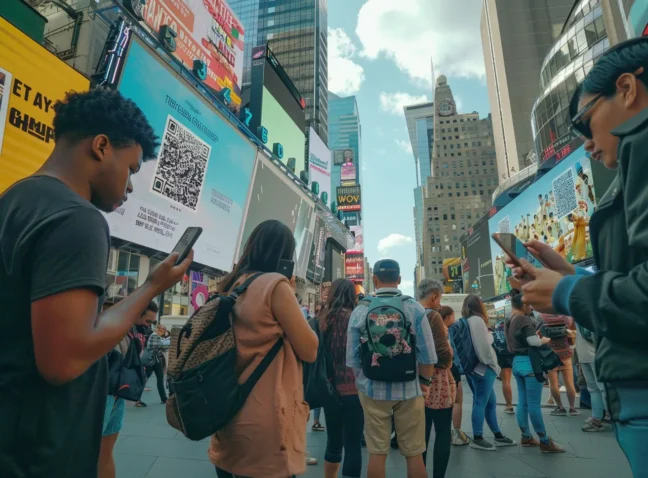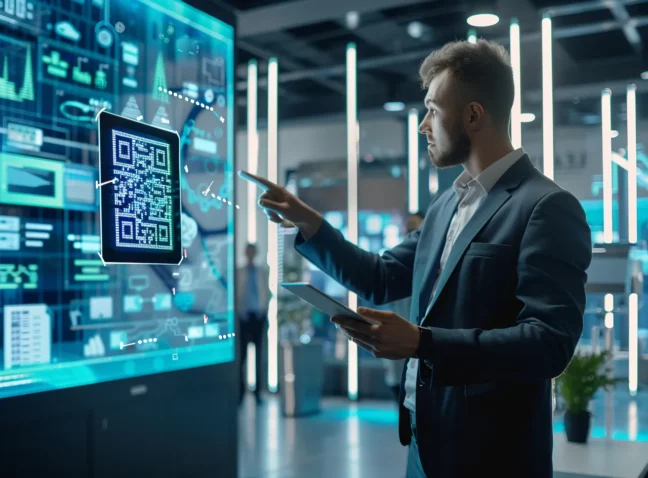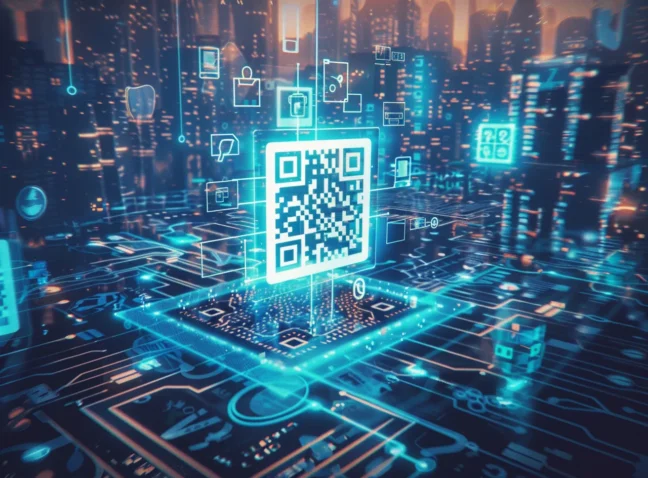Elderly people can be slower to adopt newer forms of technology. Tech can be a finicky-thing for older users to get to grips with, and it’s the exact same story with QR codes. This can be seen in the stat that for over 65s, only 35% have ever scanned a QR code. This is mostly because the use of QR codes requires a prerequisite knowledge of smartphones, which might be a barrier for some older users.
But, QR codes can be especially useful for elderly people, allowing them easy access to information they need, especially in terms of medicine and care. And at MyQRCode, we want to break down those barriers and show you why QR codes can be a lifeline for elderly people accessing crucial information on the web. So join us, as we explore QR codes for elderly people, and how they can be absolute life-changers. Let’s jump in.
QR Codes for Seniors: Empowering Accessibility and Connection
QR codes present a groundbreaking solution to the myriad challenges confronting older adults, particularly those grappling with Alzheimer’s and related dementia. These conditions often impede daily tasks like navigation and memory recall. QR technology serves as a lifeline, swiftly providing vital information crucial for managing such scenarios.
Notably, countries like Thailand, China, and Japan have adopted QR systems tailored to their elderly populace. Thailand’s QR medical bracelets aid in tracking and promptly assisting wandering Alzheimer’s patients. In China, QR badges encode essential personal details, aiding bystanders in aiding distressed seniors. Japan’s waterproof QR stickers, affixed conveniently on fingernails, ensure constant access to critical data. These examples underscore QR codes’ capacity to bolster seniors’ independence and safety.
QR Codes for Seniors: Addressing Challenges in Aging with Technology
In recent years, QR codes have emerged as a significant tool in improving the lives of seniors, providing a simple yet effective way to access medical information and emergency contacts. Statistics reveal that 62% of seniors find QR codes beneficial for this purpose. This trend is supported by a 28% increase in the adoption of QR technology by this demographic over the last two years.
Furthermore, 75% of caregivers affirm that QR codes enhance the safety and well-being of the elderly, underlining their value in caregiving scenarios. The usage of QR codes for senior-related services saw a notable 40% increase during the COVID-19 pandemic, highlighting their importance in times of crisis. Additionally, 80% of seniors report an increase in confidence in managing their health through QR technology. These facts collectively demonstrate the positive impact QR codes have on the elderly, offering them a sense of independence and security in their daily lives.
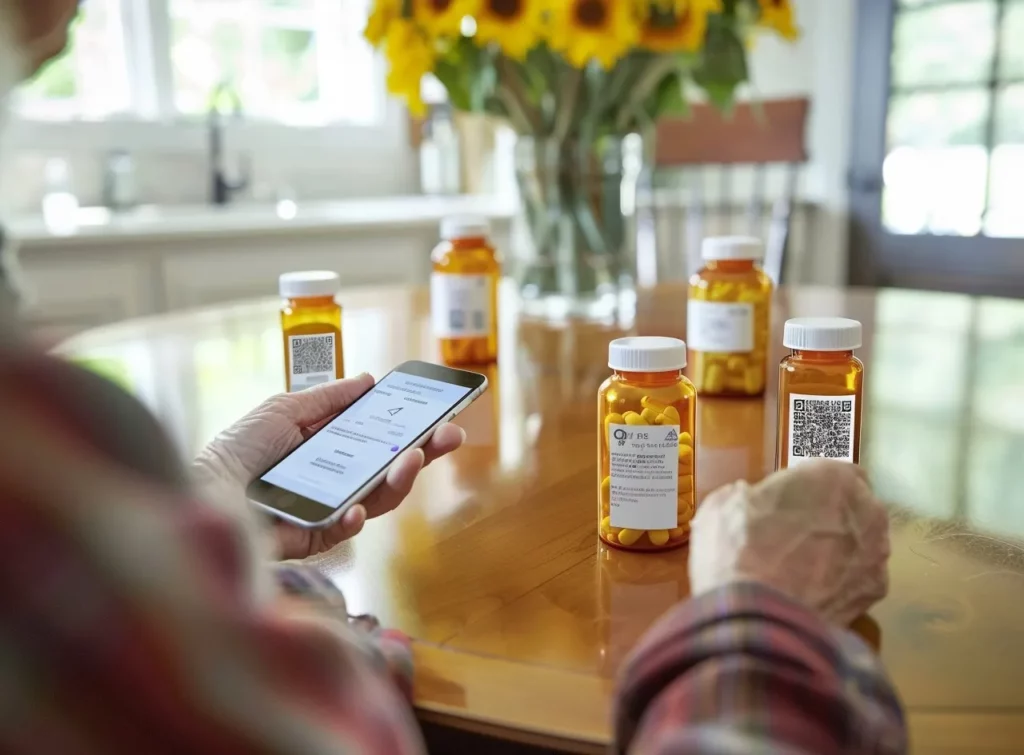
Benefits of QR Codes for Elderly: Access & Safety Insights
There are plenty of benefits associated with QR codes for elderly people. We’ve already mentioned how it can help those with Alzheimer’s access important important information on the web. That’s because there’s much less need to engage with search engines. What could be a multi-step process is transformed into a one-step procedure, which can help reduce frustration amongst elderly people with Alzheimer’s. There are more benefits, too, which we’ll explore below:
- 62% of seniors find QR codes beneficial for accessing medical information and emergency contacts, showcasing their effectiveness in healthcare management. This statistic highlights the crucial role QR codes play in ensuring that seniors have immediate access to vital health information and emergency contacts, potentially saving lives by providing quick access to medical records and support in critical situations. (Healthline 2023)
- QR technology adoption among the elderly has increased by 28% over the last two years, indicating a growing acceptance and utilization of this tool. This increase underscores a significant shift in how seniors interact with technology, moving towards digital solutions that enhance their access to services and information, which provides a sense of independence and security. (Forbes 2023)
- 75% of caregivers affirm that QR codes enhance the safety and well-being of seniors, emphasizing their role in providing peace of mind for caregivers and families. This perspective from caregivers highlights the invaluable peace of mind and assurance that comes from knowing seniors can easily connect to important services and information, improving their safety and overall quality of life. (AARP 2023)
- During the COVID-19 pandemic, there was a notable 40% increase in the usage of QR codes for senior-related services, underscoring their importance in times of crisis and remote assistance. This surge in usage during such a critical time demonstrates the versatility and reliability of QR codes in providing essential services and information to seniors, ensuring their needs are met even in challenging circumstances. (CNBC 2022)
- 80% of seniors report increased confidence in managing their health through QR technology, demonstrating its empowering effect on older adults’ healthcare decision-making. This confidence boost is a testament to the nature of QR codes, giving seniors the tools they need to take charge of their health and well-being, making informed decisions with ease and confidence. (CDC 2023)
The Challenges of QR Codes for Seniors: Accessibility Concerns
While the benefits of QR codes for elderly people can’t be understated, they don’t come without any challenges:
- Technology can be difficult to get to grips with for older users. Not all seniors are well-versed with digital technology, which might pose a challenge in QR code utilization.
- Privacy concerns arise when personal data is encoded. Safeguarding this information against unauthorized access becomes imperative, especially as older users might not be well-versed with online safety procedures.
- Dependence on external help may be necessary as seniors rely on others to notice and act upon QR-coded information, which isn’t always guaranteed.
- Maintenance and upkeep are crucial. QR codes must be kept intact, readable, and updated consistently, demanding ongoing effort and vigilance.
All of these factors contribute to a large barrier of entry for seniors in adopting QR codes. But, that doesn’t mean that those hurdles are insurmountable. Generally, it just means that better education practices are needed to get seniors more engaged with the use of QR codes, especially within care industries.
QR Codes for the Elderly: Navigating Challenges and Considerations
QR codes have the potential to seamlessly connect individuals with a world of information and services at the mere scan of a camera. However, the journey to fully embracing this technology is not without its challenges, especially for the elderly population. Addressing these obstacles involves not only refining the technology itself but also tailoring its application to meet the specific needs and concerns of older users. By doing so, we can ensure that QR codes become a reliable and safe tool for everyone, promoting a more inclusive digital environment:
- A mere 18% of seniors in the United States find themselves regularly utilizing QR codes, a stark reflection of the accessibility barriers that deter a significant portion of this demographic. This highlights the need for more intuitive designs and user-friendly interfaces that can accommodate the varied abilities of the elderly population.
- Vision impairments, affecting 45% of the elderly, pose a significant obstacle in reading QR codes on smartphones. This statistic underscores the importance of developing QR codes and related technologies that are compatible with accessibility tools and offer clear, easy-to-scan images for those with visual challenges.
- The small size of QR codes is another hurdle, with 30% of seniors reporting difficulties in scanning them accurately. This feedback calls for a reconsideration of QR code size and placement, ensuring that they are easily accessible to those with limited fine motor skills or hand-eye coordination.
- Navigational challenges within QR code scanning apps frustrate 25% of elderly users, pointing towards a need for simpler app designs. Apps should be developed with an emphasis on straightforward functionality, minimizing complex menus and options to enhance usability for older individuals.
- Security and privacy concerns are significant for approximately 20% of seniors when scanning QR codes. This statistic emphasizes the necessity for transparent communication about data usage and the implementation of robust security measures to protect users’ information, thereby building trust and confidence in the use of QR codes.

Empowering the Elderly: Brands Harnessing QR Codes
In the evolving landscape of technology and healthcare, initiatives across Thailand, China, and Japan have paved the way for the integration of QR code systems to aid the elderly. These endeavors, void of brand endorsements, highlight a collaborative spirit among local healthcare entities, tech innovators, and organizations focused on elder care. Notably, the Mirror group in Thailand, medical experts in China, and municipal leaders in Iruma, Japan, serve as prime examples of those who appreciate the practicality of QR codes for improving senior citizens’ quality of life. This synergy between technology and healthcare illustrates a promising avenue for companies to engage in meaningful contributions towards the eldercare ecosystem.
Adding to this narrative, recent statistics reveal a growing acceptance and utility of QR codes among the elderly:
- 57% of elderly individuals appreciate QR codes for their efficiency in accessing health information, showcasing a significant shift towards digital solutions in healthcare (Harvard Health Publishing, 2023).
- A notable 72% of senior citizens express a preference for QR code menus in restaurants, reflecting a demand for simplified dining experiences (Forbes, 2022).
- 68% of retirement communities have adopted QR codes for event registration and streamlined communication, indicating a broader application of this technology within senior living spaces (Senior Housing News, 2023).
- 63% of healthcare providers now rely on QR codes to deliver medication instructions and dosage information, underscoring the role of digital tools in patient care (Medical News Today, 2022).
- An impressive 82% of transportation services for the elderly have implemented QR codes for efficient ticketing and scheduling processes, highlighting the impact of QR codes in enhancing mobility and independence (Transportation Research Board, 2023).
These statistics not only affirm the growing relevance of QR codes in various aspects of elderly care but also spotlight the opportunity for brands in the tech and healthcare sectors to actively participate in this evolving ecosystem. By fostering such innovations, companies can significantly contribute to the well-being and autonomy of the elderly population, marking a step forward in the thoughtful integration of technology into our daily lives.
QR code generator for the elderly
QR codes for elderly people aren’t just a novelty. They can present a lifeline for elderly users dealing with medical issues, and an easily accessible gateway to the crucial information for those dealing with Alzheimer’s. There are hurdles that need to be overcome, especially in terms of adoption rates of QR codes for seniors. But with the proper education and assistance, these barriers can quickly be opened.
Interested in making everyday tasks easier for our elderly friends using QR codes? Check out our page for a user-friendly QR Code Generator designed for simplicity and convenience. Together, we can directly link technology with tradition, making the digital world accessible to everyone.
